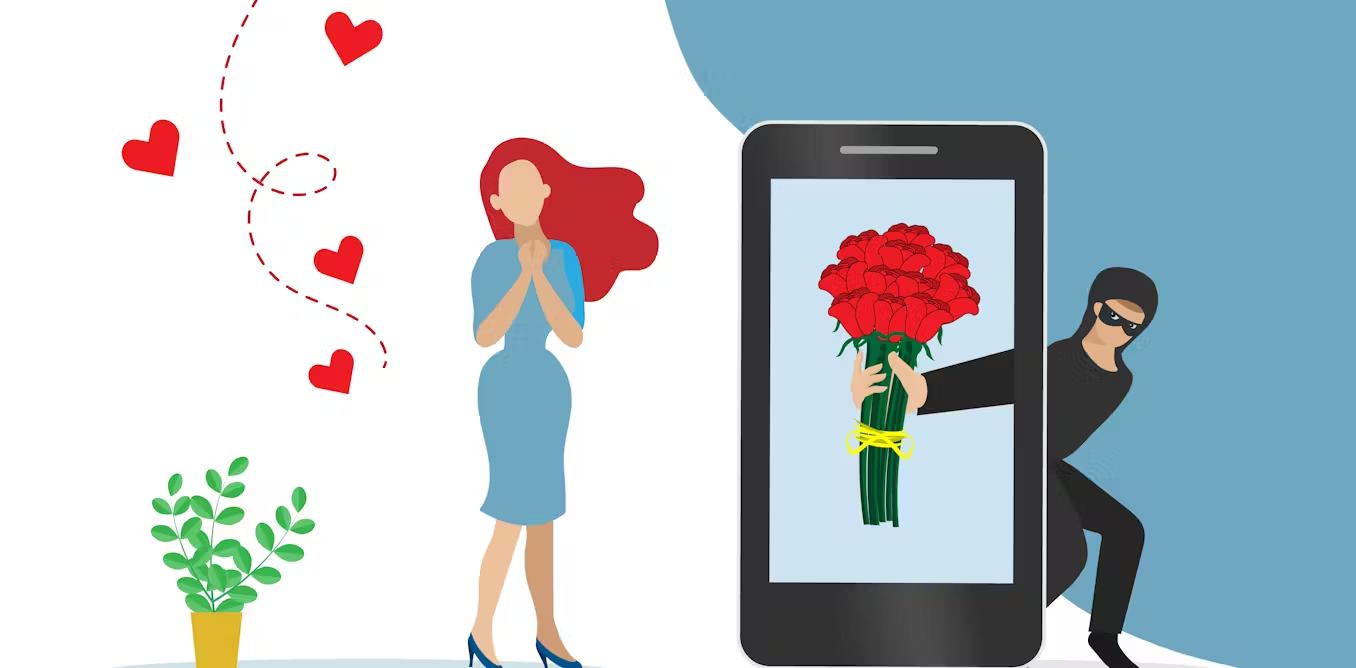Online Dating Scams: How to Spot and Protect Yourself from Romance Scams
Online dating has revolutionized the way people meet and connect with potential partners. It has opened doors to finding love across borders and breaking geographical barriers. However, with the growth of online dating platforms, online dating scams have also increased. These scams prey on vulnerable individuals seeking companionship, causing financial loss, emotional distress and broken trust. In this article, we’ll examine the different types of online dating scams, how to spot them, and steps you can take to protect yourself from falling victim to these fraudulent schemes.
The rise of online dating scams
With the growing popularity of online dating platforms, fraudsters have found a fertile ground to exploit the unsuspecting. According to the Federal Trade Commission (FTC), online dating scams are on the rise, costing victims millions of dollars annually. Fraudsters create fake profiles on dating sites or apps, often using stolen photos and false information to lure their victims. Once they gain the trust of their target, they begin to manipulate and exploit them for financial gain.
Common Types of Online Dating Scams

Cat fishing
Catfishing is one of the most common types of online dating scams. In this scheme, scammers create a fake profile using someone else’s photos and personal information. They can also impersonate a real person to make their profile more convincing. The deceiver engages in rapport with the victim, often expressing intense emotions immediately. Once they gain the victim’s trust, they begin making requests for money, claiming that financial assistance is needed due to a sudden emergency, medical bills, or travel expenses.
Romance scams
Romance scams are more sophisticated and involve fraudsters building a deep emotional connection with their victims over a long period of time. A cheater may communicate with the victim daily, showering them with affection and promises of a future together. Once the victim is emotionally invested, the scammer will create a story that requires financial support. This could be due to a business deal, a medical emergency, or any other plausible reason. The victim, believing they are helping their loved one, sends money, often multiple times, until they realize they have been duped.
Military romance scams
In military romance scams, fraudsters pose as soldiers stationed overseas. They often use stolen photos of real military personnel to create a convincing profile. The scammer will tell stories of being in a dangerous place and unable to access their bank account. They will then ask the victim for money to help them return home or cover necessary expenses. These scams prey on victims’ sympathy and willingness to support those in the armed forces.
Phishing scams
Online dating fraud scams involve fraudsters sending emails or messages that appear to be from a legitimate dating site. These messages may contain links that, when clicked, lead to fraudulent websites designed to steal personal information such as login credentials, credit card numbers, or other sensitive data. Victims may unwittingly provide their details, which scammers then use to commit identity theft or access their financial accounts.
Blackmail schemes
Blackmail scams occur when scammers convince their victims to share intimate photos or videos. Once the fraudster has these images, they threaten to release them publicly unless the victim pays a ransom. This form of extortion can cause severe emotional distress and financial loss to the victim.
Red flags of online dating scams
Fast Tracked Romance
Cheaters often rush the relationship, declaring love or deep affection within days or weeks of meeting online. If someone you just met online is professing love too soon, that’s a big red flag.
Request for money
One of the most obvious signs of a scam is when someone asks for money. Whether it’s for an emergency, travel expenses, or a business deal, be careful if someone you’ve never met in person asks for financial help.
Conflicting information
Fraudsters often slip into their own stories. They may provide conflicting details about their background, job, or location. If the person seems awkward or conflicted when you ask a question, it may be a sign that they are not who they claim to be.
Reluctance to meet in person
If the person you’re talking to is always making excuses to avoid meeting in person or video chatting, they might be hiding something. Fraudsters often use this tactic to maintain their false identity.
Protect yourself from online dating scams
Research and verify.
Before making a huge emotional investment, take the time to research the person you are communicating with. Do a reverse image search of their profile pictures to see if they appear elsewhere on the internet. If their photos are linked to multiple profiles with different names, it’s likely a scam. Additionally, verify any personal information they provide, such as their employment or location.
Never send money.
No matter how convincing the story, never send money to someone you’ve only met online. This is the most common request from scammers, and once you send the money, it’s almost impossible to recover it.
Use reputable dating sites.
Stick to reputable dating platforms with strong security measures. These sites often have verification processes and monitor for suspicious activity. Be careful when using smaller or less established dating apps that may have weak security measures against scams.
Be careful with personal information
Avoid sharing sensitive personal information, such as your home address, financial details, or Social Security number, with someone you just met online. Fraudsters can use this information to commit identity theft or other forms of fraud.
Trust your instincts.
If something sounds good or is too good to be true, trust your instincts. Fraudsters are good at manipulation, but if you’re careful and vigilant, you can protect yourself from becoming a victim.
Report suspicious activity.
If you suspect you are being scammed, report the profile to the dating platform immediately. Most dating sites have a mechanism to block and remove fake accounts. You should also report the scam to the FTC or the equivalent consumer protection agency in your country.
What to do if you’ve been scammed
If you’ve fallen victim to an online dating scam, it’s important to take immediate action:
Close all communications.
End all contact with the scammer. Do not engage further, as they may try to manipulate you into sending more money or sharing more personal information.
Report a scam.
Report the scheme to the dating site or app where the conversation took place. This will help prevent others from falling victim to the same scammer.
Contact your bank.
If you sent money, contact your bank or financial institution to report the fraud and see if there are any options for recovering your funds. They may also take steps to protect your accounts from further unauthorized transactions.
Monitor your accounts.
Keep a close eye on your bank and credit card statements for any suspicious activity. Consider placing a fraud alert on your credit report to prevent identity theft.
Find support.
Being a victim of fraud can be an emotional experience. Don’t hesitate to get help from friends, family, or a counselor. There are also support groups and online forums where you can share your experience with others who have been through similar situations.
Read More: Navigating Love’s Journey: Is AmoLatina a Real Dating Site?













